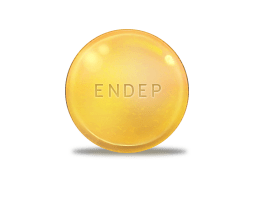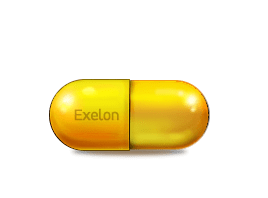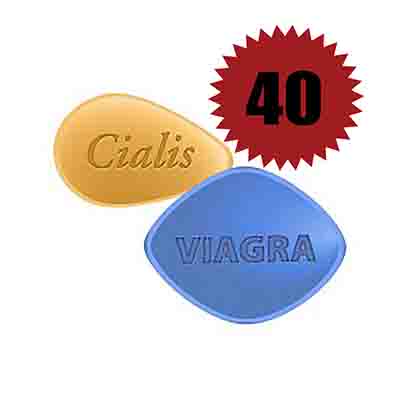- Your cart is empty
- Continue Shopping
Warnings and Precautions
Serious Warnings and Precautions
EDARBYCLOR should not be used during pregnancy. If you discover that you are pregnant while taking EDARBYCLOR, stop the medication and contact your doctor, nurse, or pharmacist as soon as possible.
Before you use EDARBYCLOR talk to your doctor, nurse, or pharmacist if you:
- Are allergic to any drug used to lower blood pressure, including angiotensin converting enzyme (ACE) inhibitors, or penicillin.
- Have narrowing of an artery or a heart valve.
- Have heart failure.
- Have had a heart attack or stroke in the past.
- Have had a surgery on a nerve (sympathectomy).
- Have diabetes, liver or kidney disease.
- Have lupus or gout.
- Are on dialysis.
- Are dehydrated or suffer from excessive vomiting, diarrhea, or sweating.
- Are taking a salt substitute that contains potassium, potassium supplements, or a potassium-sparing diuretic (a specific kind of “water pill”).
- Are on a low-salt diet.
- Have asthma.
- Are less than 18 years old.
- Are taking a medicine that contains aliskiren, such as Rasilez, used to lower high blood pressure. The combination with EDARBYCLOR is not recommended.
- Are taking an angiotensin converting enzyme inhibitor (ACEI). You can recognize ACEIs because their medicinal ingredient ends in ‘-PRIL’.
Chlorthalidone, a thiazide-like diuretic in EDARBYCLOR, can cause Sudden Eye Disorders such as:
- Myopia: sudden nearsightedness or blurred vision.
- Glaucoma: an increased pressure in your eyes, eye pain. Untreated, it may lead to permanent vision loss.
These eye disorders are related and can develop within hours to weeks of starting EDARBYCLOR.
You may become sensitive to the sun while taking EDARBYCLOR. Exposure to sunlight should be minimized until you know how you respond.
Driving and using machines:
Before you perform tasks which may require special attention, wait until you know how you respond to EDARBYCLOR. Dizziness, lightheadedness, or fainting can especially occur after the first dose and when the dose is increased.
Side Effects
Side effects may include:
-
back or leg pain, muscle cramps, spasms and pain, weakness, restlessness
-
dizziness, pins and needles in your fingers, headache
-
constipation, diarrhea, nausea, vomiting, decreased appetite, upset stomach, enlargement of the glands in your mouth
-
bleeding under the skin, rash, red patches on the skin
-
drowsiness, insomnia, fatigue
-
reduced libido
If any of these affects you severely, tell your doctor, nurse or pharmacist.
EDARBYCLOR can cause abnormal blood test results. Your doctor will decide when to perform blood tests and will interpret the results.
Interactions with this medication
As with most medicines, interactions with other drugs are possible. Tell your doctor, nurse, or pharmacist about all the medicines you take, including drugs prescribed by other doctors, vitamins, minerals, natural supplements, or alternative medicines.
The following may interact with EDARBYCLOR:
-
Adrenocorticotropic hormone (ACTH) used to treat West Syndrome.
-
Alcohol, barbiturates (sleeping pills), or narcotics (strong pain medications). They may cause low blood pressure and dizziness when you go from lying or sitting to standing up.
-
Amphotericin B, an antifungal drug.
-
Anticancer drugs, including cyclophosphamide and methotrexate.
-
Antidepressants, in particular selective serotonin reuptake inhibitors (SSRIs), including citalopram, escitalopram, and sertraline.
-
Antidiabetic drugs, including insulin and oral medicines.
-
Bile acid resins used to lower cholesterol.
-
Blood pressure-lowering drugs, including aliskiren-containing products (e.g. Rasilez), or angiotensin converting enzyme inhibitors (ACEIs).
-
Calcium or vitamin D supplements.
-
Corticosteroids used to treat joint pain and swelling.
-
Digoxin, a heart medication.
-
Drugs that slow down or speed up bowel function, including atropine, metoclopramide, and domperidone.
-
Drugs used to treat epilepsy, including carbamazepine and topiramate.
-
Gout medications, including allopurinol and probenecid.
-
Lithium used to treat bipolar disease.
-
Nonsteroidal anti-inflammatory drugs (NSAIDs), used to reduce pain and swelling. Examples include ibuprofen, naproxen, and celecoxib.
-
Skeletal muscle relaxants used to relieve muscle spasms, including tubocurare.
Proper Use of this medication
Keep EDARBYCLOR in its original container to protect it from light and moisture.
Take EDARBYCLOR exactly as prescribed. It is recommended to take your dose at about the same time every day.
EDARBYCLOR may be taken with or without food.
Usual adult dose:
The usual starting dose is one tablet of EDARBYCLOR 40 mg/12.5 mg taken by mouth once a day. Your doctor may increase your dose if an additional blood pressure reduction is required.
The maximum dose of EDARBYCLOR is 40 mg/25 mg a day.
Overdose
Warning:
If you think you have taken too much EDARBYCLOR contact your doctor, nurse, pharmacist, hospital emergency department or regional Poison Control Centre immediately, even if there are no symptoms.
Missed dose:
If you have forgotten to take your dose during the day, carry on with the next one at the usual time. Do not double dose.






